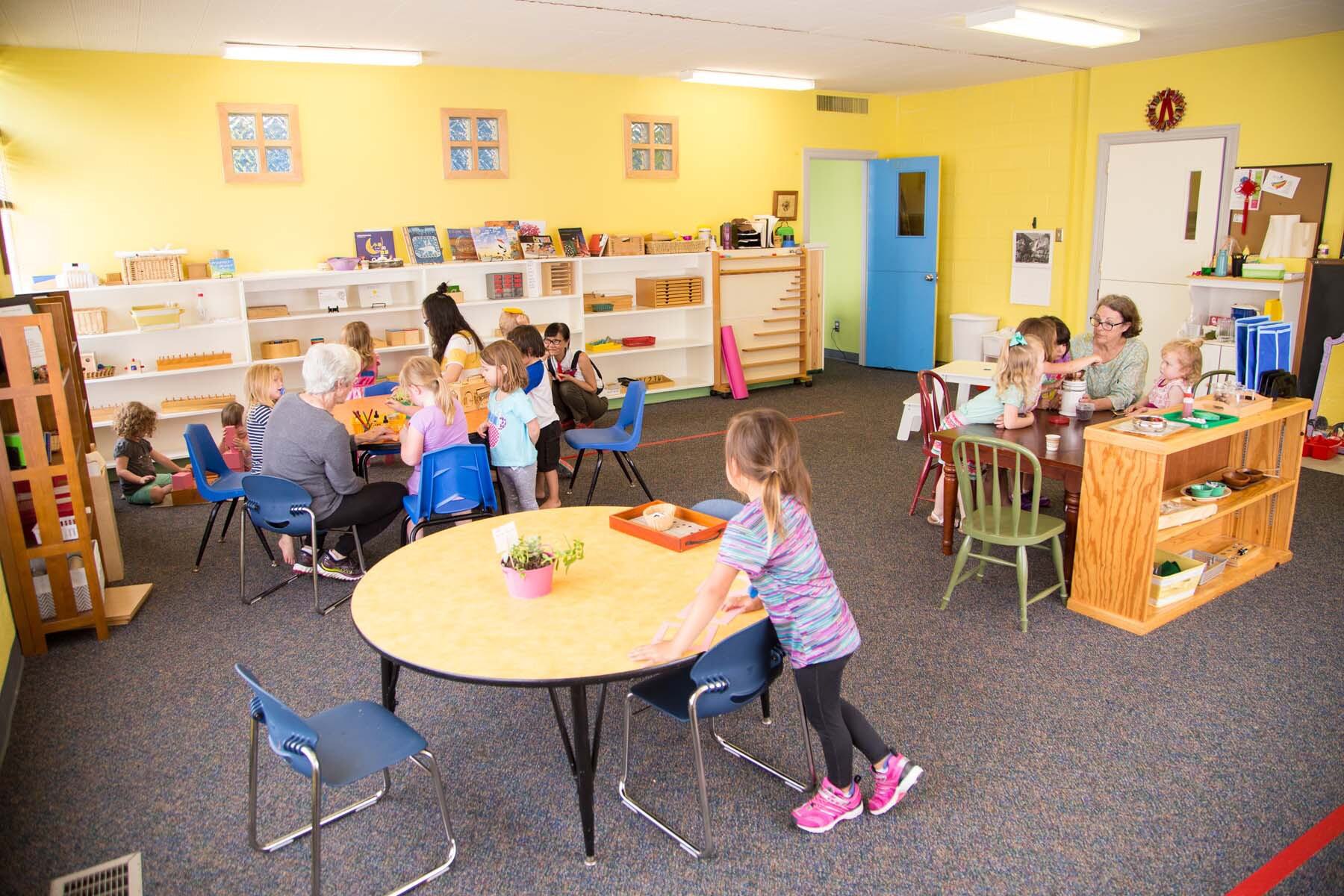

The Oklahoma City University Montessori Teacher Certification Program provides coursework that matches the standards and requirements provided by the American Montessori Society, though we are not affiliated at this time. This program has previously been affiliated by the American Montessori Society and accredited through the Montessori Accreditation Council for Teacher Education beginning in the early 1970s. We are currently going through the re-accreditation process.
This program is a Continuing Education program that delves into the Montessori educational method over a two-year time period. The program begins in July with some summer coursework in addition to fall and spring classes.
The Montessori classroom is a prepared environment in which children’s inherent love of learning is encouraged by engaging them in purposeful and meaningful activities. Through their work, children develop concentration and self-discipline. Within this structured and orderly environment, children progress, each at his/her own pace, facilitated by a credentialed Montessori teacher.
Dr. Montessori’s observations of children led her to design multi-sensory, sequential and self-correcting materials. Learning through concrete, hands-on materials provides a firm foundation for later abstract thinking. Multi-age groupings are also a part of the prepared environment. A three-year age span in each class allows for learning to take place naturally. More experienced children share what they have learned while reinforcing their own learning.
The Montessori Method is based on a deep respect for children and a thorough understanding of child development. The primary goal of a Montessori education is to help each child reach his/her full potential in all areas of life.
Interested to know more? Join our mailing list here!
SUMMER 1 (week-long intensives):
Montessori Philosophy I (2 modules)
Practical Life (8 modules)
FALL 1 (evening and weekend classes):
Montessori Philosophy II (6 modules)
Sensorial (8 modules)
SPRING 1 (evening and weekend classes):
Math (8 modules)
Child Development (8 modules)
SUMMER 2 (week-long intensives):
Language (8 modules)
Cultural (4 modules)
FALL 2 (evening and weekend classes):
Internship*✢
Project Planning, Material Making and Observational Skills I (8 modules)*
Seminar I (4 modules)*
SPRING 2 (evening and weekend classes):
Internship*✢
Project Planning, Material Making and Observational Skills II (8 modules)*
Seminar II (4 modules)*
*must have passed all courses offered in Summer 1, Fall 1 and Spring 1 to attend*
✢for those students wishing to pursue an AMS Early Childhood Credential, they must complete all courses in addition to a ½ day internship, 5 days a week in a Montessori 3-6 classroom for 9.5 months✢
Register for our Montessori 2024 Cohort online using the form here.
Module registration and course fees are due by June. 1, 2024. No refunds given after this date. A minimum of six participants must register for program modules to meet. Questions about the Montessori Certificate can be directed to Jennifer Bush, Co-Director of OCU MTCP, [email protected] or Charlotte Wood-Wilson, Co-Director of OCU MTCP, [email protected]
